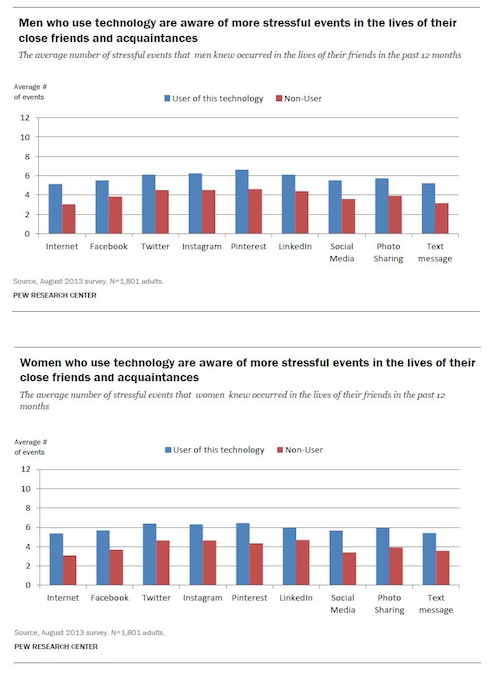By adaptive - January 21st, 2015
New research suggests that today communications technologies have an impact on the stress levels of consumers that all marketers need to be aware of.

- A woman with an average-size network of Facebook friends is aware of 13% more stressful events in the lives of her closest social ties, compared with an equivalent woman who does not use Facebook. And that average woman user is aware of 14% more stressful events in the lives of her more-distant acquaintances.
- A typical male Facebook user who comments regularly on others’ posts is aware of 8% more stressful events amongst his closest social ties. A man with an average-size network of Facebook friends is aware of 6% more major events in the lives of his acquaintances, compared with an equivalent male who does not use Facebook.
Next Reads
June 2015, New York
With over 50 expert speakers (including 15 CMOs and CCOs) from the world’s most social brands, and 300+ of your corporate peers in attendance, #CSMNY offers unrivaled learning, networking and benchmarking opportunities. It is truly THE social media event of year.
Brochure Programme